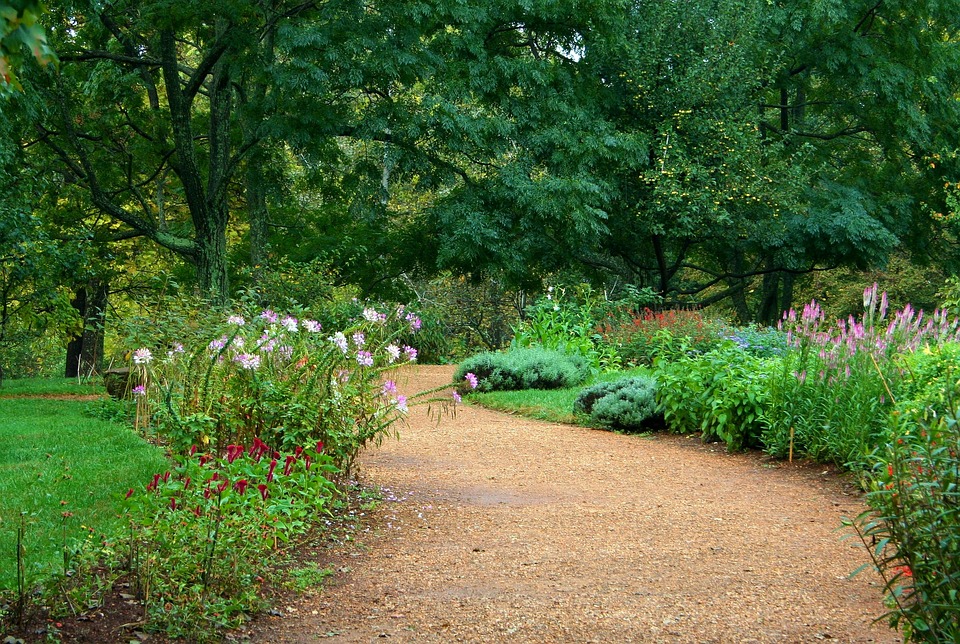Sustainable High-Volume Gardening Tips

Sustainable High-Volume Gardening: A Green Thumb's Guide
Alright, fellow green-fingered enthusiasts, let's dive into the world of sustainable high-volume gardening. You're here because you want to grow more, waste less, and nurture our planet while you're at it. Well, you've come to the right place! Let's roll up our sleeves and get started.
Why Sustainable Practices Matter
Picture this: you're a gardener in a never-ending quest to feed your family, friends, and maybe even your local food bank. But you're also conscious of your impact on the environment. That's where sustainable practices come in. They're like the secret sauce that helps you grow more while using fewer resources. It's a win-win, right?
Organic Methods: Nourishing Soil, Nourishing Plants
Organic methods are the backbone of sustainable high-volume gardening. By focusing on building healthy soil, you're creating a thriving ecosystem that supports your plants. Think of it like a bustling city - the more diverse and happy its inhabitants, the better it functions.
Composting: Turning Waste into Wealth
Composting is like printing money in the gardening world. It turns your kitchen scraps and yard waste into nutrient-rich gold for your plants. Plus, it reduces landfill waste. It's a no-brainer, really. Here's a simple recipe to get you started:
- Browns: Carbon-rich materials like dry leaves and cardboard (2/3)
- Greens: Nitrogen-rich materials like fruit scraps and coffee grounds (1/3)
- Water: Just enough to make it damp, not soggy
Mix 'em up, let them sit, and voila! Black gold in a few months.
Water Conservation: Making Every Drop Count
Water is life, and in gardening, it's also a precious resource. Here's how to make every drop count:
Mulching: Nature's Water-Saving Hack
Mulching is like giving your plants a cozy blanket that retains moisture and suppresses weeds. It's a no-brainer for any sustainable gardener.
Drip Irrigation: Targeted Watering
Drip irrigation is like a personal watering service for your plants. It delivers water directly to the roots, reducing evaporation and waste. It's a win-win for your plants and your water bill.
Crop Rotation: The Garden's Version of Musical Chairs
Crop rotation is like musical chairs for your plants. It helps prevent soil depletion, reduces pests and diseases, and keeps your garden productive. Here's a simple rotation plan:
- Year 1: Plant heavy feeders like tomatoes, peppers, and cucumbers.
- Year 2: Move these plants to a new bed and replace them with light feeders like lettuce, spinach, and radishes.
- Year 3: Give the heavy feeders a rest and plant nitrogen-fixing plants like beans and peas.
Green Gardening: Bringing the Outdoors In
Don't let the weather or lack of outdoor space stop you. Green gardening indoors is a sustainable practice that's gaining traction. With the right setup, you can grow fresh produce year-round. Think of it like a mini greenhouse in your home.
Water-Saving Tips from the EPA
Speaking of water conservation, the EPA has some fantastic tips to help you save water in your garden. Check them out here.
Maximizing Yield: The Art of Succession Planting
Succession planting is like playing a game of Tetris with your garden. It involves planting fast-growing crops in the spaces left by harvested plants. This maximizes your yield and keeps your garden productive all season long.
Sustainable High-Volume Gardening: A Community Effort
Remember, you're not alone in this quest for sustainable gardening greatness. Join local gardening groups, share your knowledge, and learn from others. Together, we can grow more, waste less, and make our planet a greener place.
Conclusion
Sustainable high-volume gardening is a journey, not a destination. It's about making small changes that add up to a big impact. So, grab your trowel, get your hands dirty, and let's grow something amazing together!
FAQs
-
Q: How do I know if my compost is ready? A: The compost is ready when it's dark, crumbly, and smells like earth. It should be free of recognizable scraps and hot to the touch.
-
Q: Can I use tap water to water my plants? A: Yes, but it's best to let the water sit for 24 hours to allow chlorine to evaporate. Or, use rainwater if possible.
-
Q: How do I know if my plants need more water? A: Stick your finger about an inch into the soil. If it feels dry, it's time to water.
-
Q: Can I use coffee grounds in my compost? A: Yes, coffee grounds are a great source of nitrogen. Just don't use too many, as they can make the compost too acidic.
-
Q: How can I attract beneficial insects to my garden? A: Plant a variety of flowers and herbs that attract beneficial insects. These include marigolds, dill, and chives.
0 Response to " Sustainable High-Volume Gardening Tips"
Post a Comment